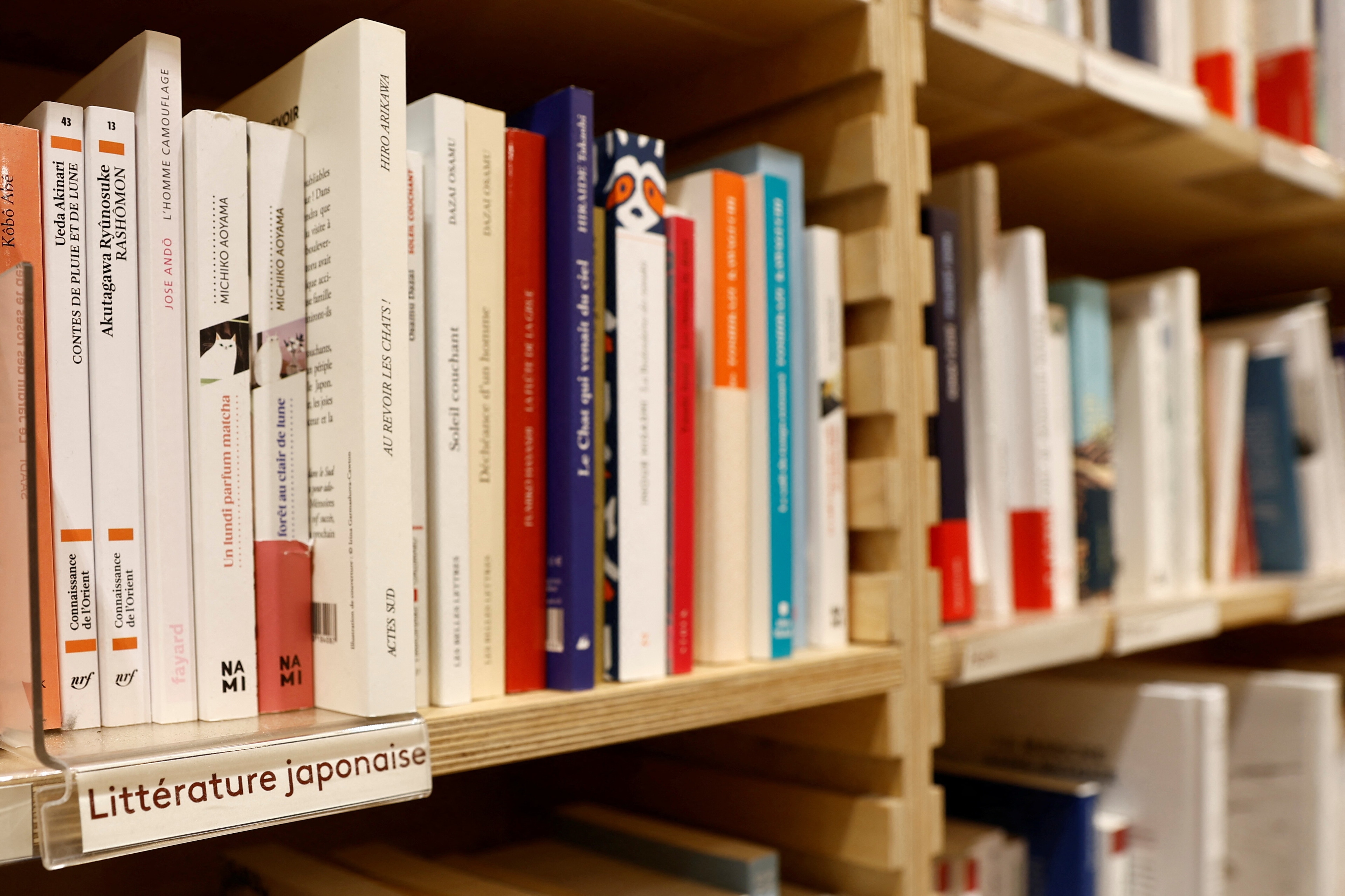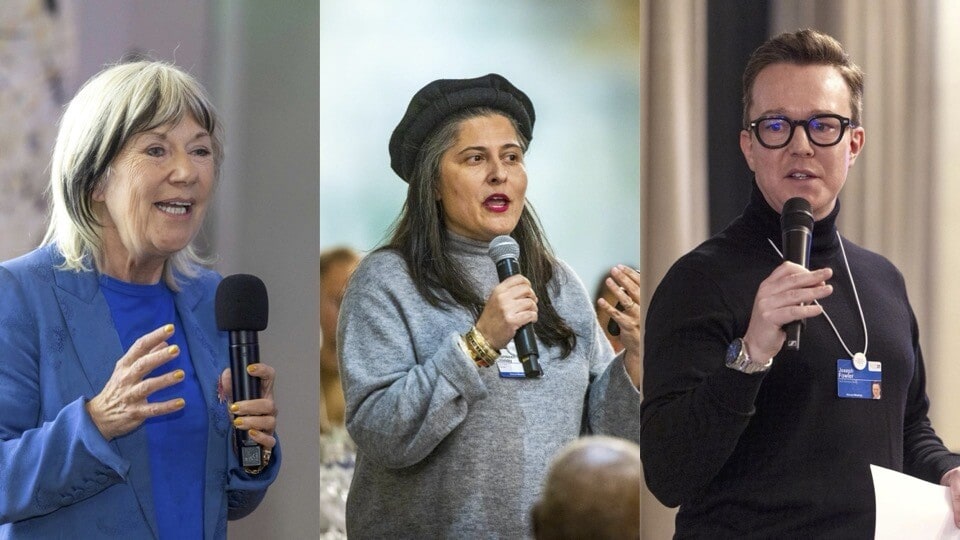Want to be happier at work? Don’t quit your day job – get a creative side project

If your identity isn’t defined primarily by your 9 to 5, you’ll have a healthier outlook on life. Image: REUTERS/Kai Pfaffenbach
A lot of people want to write novels, exhibit their paintings in a gallery or play in a band. But the frustrating reality is that it’s very difficult to make a living on art alone. I have many creatively inclined friends who bemoan the fact that they’ve had to settle for a job that met the needs of the market rather than their own souls.
And yet, I sometimes feel that our culture has set up a forced dichotomy. Most people are perfectly capable of holding a job that pays the bills while pursuing a project that fulfills a personal creative need. In fact, each effort can end up enriching the other. One woman I met—who is both an entrepreneur and a painter and finds fulfillment in both areas—calls this lifestyle a “journey of duality.” You could think of these artistic pursuits as side hustles for the soul.
Chris Guillebeau, an entrepreneur and author of the books Born for Thisand The Happiness of Pursuit, thinks everyone should have a creative side hustle. In this day and age, there’s no need to strive for “occupational purity,” he told me in an interview.
Taking on a side hustle that is personally meaningful to you is a way to expand the way you think about yourself and the world around you. It’s a way to say: I’m not only an accountant; I’m also a cartoonist. I’m not just a software engineer; I also make furniture. I don’t just write jingles for commercials; I’m also the lead singer of a heavy metal band. These kinds of projects can inject a dose of creativity into the way you approach your day job—and just plain make you happier and more fun to be around.
If your identity isn’t defined primarily by your 9 to 5, you’ll have a healthier outlook on life. A side pursuit can also make you more resilient. People who stake all their identity on their day jobs can be devastated, not just financially but psychologically, if they are suddenly fired or laid off. If your identity isn’t defined primarily by your 9 to 5, you’ll have a healthier outlook on life.
Making room for your side project is a matter of figuring out how to manage your time and energy, Guillebeau said. That takes different forms for different people.
For people who want to pour the bulk of their energy into their creative work, having a less demanding full-time job may be the best way to handle the duality of their lives. The composer Philip Glass drove a cab before he was able support himself through his music alone. “The good thing was I didn’t have to work that many hours, because in three or four nights I could make enough money to live on,” he writes in his memoir Words Without Music.
Research by Roy Baumeister, a psychology professor at Florida State University, has shown that we have a finite store of willpower that becomes drained over the course of a day regardless of the task. For Glass, it was preferable to conserve most of his willpower for his demanding creative work and make money in a way that did not require a lot of extra intellectual energy. I once interviewed a man who worked full-time as a janitor and felt the same way. He preferred a mentally undemanding day job so that he could devote his energy to creating a museum dedicated to his late father’s artwork.
Some people don’t mind a demanding day job, as long as it is completely separate from their creative passion. The novelist Franz Kafka, the poet Wallace Stevens and the composer Charles Ives all held full-time jobs in the insurance industry. Anthony Trollope, author of 47 novels–some of them extremely long–worked diligently as an employee of the British post office for much of his adult life. (He wrote much of his famous novel Barchester Towers while riding on trains.)
Others find they can handle a job that is similar to, but not quite the same as, their side gig. As an article in the Awl noted, F. Scott Fitzgerald, Salman Rushdie, Dorothy Sayers, Don DeLillo and Joseph Heller were all advertising copywriters before they became full-time novelists. Rushdie, who worked at Ogilvy & Mather, noted, “I do feel that a lot of the professional craft of writing is something I learnt from those years in advertising and I’ll always be grateful for it.”
My job set up firmer boundaries around my free time, whereas I was more likely to fritter away the hours when I had the whole day to write. I fall firmly into the latter camp. I wrote a book while working full-time as a journalist. While it wasn’t easy to do both, looking back I can see that benefits accrued in both directions. I was able to draw on sources I had developed in my day job as a newspaper journalist to find experts and case studies for my book. Conversely, the book expanded my list of sources even further and, I hope, gave my workaday writing more depth.
It’s true that some people are so busy with their full-time jobs and their family obligations that they have no time to pursue a personal creative project. But such situations are rarely true across the entirety of our lives. Most people can find a stage in life where they can carve out at least little time for a creative side hustle. In fact, I found that I wasted far more time when I took a short leave to work on my book than when I was working full-time. My job set up firmer boundaries around my free time, whereas I was more likely to fritter away the hours when I had the whole day to write.
The secret to a side hustle for the soul is to believe in the power of incrementalism. Know that 20 minutes here and there add up. We can make it a priority to find time to devote to personally meaningful endeavors. And collectively, we can work toward building a culture that understands our creations are no less meaningful if they don’t pay the mortgage or the rent.
Don't miss any update on this topic
Create a free account and access your personalized content collection with our latest publications and analyses.
License and Republishing
World Economic Forum articles may be republished in accordance with the Creative Commons Attribution-NonCommercial-NoDerivatives 4.0 International Public License, and in accordance with our Terms of Use.
The views expressed in this article are those of the author alone and not the World Economic Forum.
Stay up to date:
leadership
Related topics:
Forum Stories newsletter
Bringing you weekly curated insights and analysis on the global issues that matter.
More on Arts and CultureSee all
Elena Raevskikh and Giovanna Di Mauro
October 22, 2025






